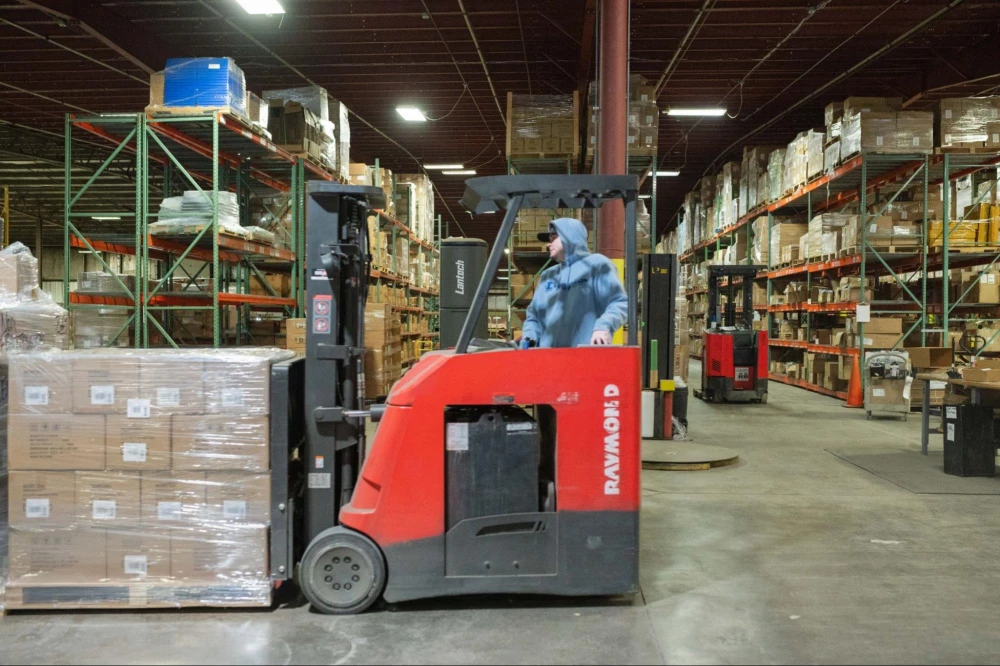
Amazon FBA Capacity Limits 2024: How to Effectively Manage Your FBA Storage
- Oct 8, 2024
- Inventory Management
- G10
- Retail Fulfillment

As Amazon sellers scale their businesses, the stress of managing inventory can become a growing concern, especially with the added pressure of Amazon FBA capacity limits. While these restrictions are meant to help sellers keep the right amount of inventory on hand for their current sales levels and upcoming holidays, it is still a tremendous amount of work to manage. Sellers must find effective solutions to navigate these challenges and streamline their inventory management.
Why inventory management is important? By adopting effective strategies such as partnering with third-party logistics providers (3PLs), leveraging accurate demand forecasting, and staying on top of inventory levels, sellers can reduce the stress of managing stock while continuing to grow their businesses efficiently.
FBA Storage, or Fulfillment by Amazon Storage, is a service provided by Amazon that allows sellers to store their products in Amazon's fulfillment centers. Once products are in these centers, Amazon takes care of picking, packing, shipping, and even customer service for those items. This service enables sellers to leverage Amazon’s vast logistics network, ensuring fast and reliable delivery to customers.
FBA Storage is especially beneficial during peak sales periods, as it allows sellers to focus on growing their business while Amazon manages inventory, shipping, and returns. However, sellers must manage their inventory levels carefully to avoid breaching their capacity limit.
Amazon creates inventory capacity limits for sellers that must be adhered to, but, thankfully, Amazon eliminated the overage fee for storage effective July 1, 2024.
Amazon FBA capacity limits are the maximum quantity of inventory a seller is allowed to store in Amazon’s fulfillment centers. These limits are determined for different storage categories, such as standard-size, oversize, apparel, footwear, and extra-large items. Amazon's FBA capacity limits are designed to help sellers manage their inventory and avoid overstocking or running out of stock. Sellers can use the Capacity Manager in Seller Central to gain greater visibility and control over their inventory capacity and request more storage space, if needed.
Amazon 2024 FBA capacity limits are based on a number of factors, including:
1. Sales performance. Amazon considers a seller's historical sales volume and seasonal and peak selling periods when determining storage limits.
2. Amazon Inventory Performance Index (IPI). The IPI is used to help determine storage limits for Amazon sellers. This score is based on a number of factors, including excess inventory, sell-through rate, stranded inventory, and in-stock rate.
3. Holiday season. Amazon increases storage limits in the fall as it prioritizes receiving inventory in September and October to ensure products are available for the holiday season.
Your overall capacity limit represents the maximum number of units you can store in Amazon's FBA warehouses, measured in cubic feet. This limit is regularly reviewed and adjusted. It accounts for items already in Amazon’s warehouses, inventory in transit to Amazon, and shipments that have been prepared but not yet sent.
Amazon’s inventory storage limit depends on several factors:
· Type of seller account. Individual sellers are restricted to a fixed storage limit of 15 cubic feet. In contrast, professional selling accounts have FBA capacity limits that vary based on the age of their account and their Inventory Performance Index (IPI) score.
· Age of seller account. New sellers with less than 39 weeks of activity or insufficient sales data to calculate an IPI do not have storage limits. In addition, the first two cycles after the first IPI calculation do not have storage limits.
· Product type. Professional sellers of standard-sized, oversized, apparel, and footwear items do not have a storage limit if they maintain an IPI within the required threshold.
To identify your capacity limit, log in to Seller Central. Go to Inventory > Inventory Performance and look for Capacity Monitor at the bottom of the page.
Managing FBA storage efficiently is crucial for avoiding stockouts and navigating Amazon’s capacity limits. Here are some inventory sellers solutions:
Use Demand Forecasting Tools. Leverage Amazon’s forecasting tools to predict sales and ensure you only send the right amount of inventory to FBA centers.
Partner with a 3PL. Work with a third-party logistics provider (3PL) to store excess inventory off-site and ship products to Amazon as needed, avoiding storage limit issues.
Monitor Inventory Performance Index (IPI) Score. Regularly check your IPI score to maintain a higher storage limit by keeping inventory levels balanced and optimizing sell-through rates.
Set Up Inventory Alerts. Use inventory management software to set alerts for low stock levels, giving you time to reorder and restock without delays.
Remove Excess Inventory. Regularly audit your inventory to identify slow-moving products and remove them from Amazon’s fulfillment centers to avoid long-term storage fees.
Optimize Shipment Timelines. Plan shipments strategically to minimize downtime between inventory arrival and sales, ensuring a constant flow of products.
By applying these solutions, Amazon sellers can better manage FBA storage and reduce the stress of inventory management while growing their business.
G10 acts as a vital middleman between Amazon sellers and Amazon, creating a scalable retail fulfillment process to relieve sellers of the stress of managing their inventory. Sellers send their products directly from their manufacturers to G10, where the products are warehoused until Amazon requests inventory for FBA storage. Using Amazon’s forecasting tools through Seller Central, G10 ensures the correct quantities are shipped to Amazon at the right time. G10 also prevents costly chargeback fees by adhering to Amazon’s strict packaging and labeling guidelines. Additionally, G10 monitors stock levels and provides sellers with alerts when inventory is running low, allowing them time to reorder from manufacturers and keep the supply chain flowing smoothly.
E-Commerce and retail order fulfillment is the backbone of your online business, ensuring that orders are processed, packed, and shipped accurately and efficiently. At G10, we understand the complexities of B2C commerce fulfillment services and are dedicated to providing tailored ecommerce wholesale solutions. From order management to inventory control to FBA storage management, our team of experts is here to help you streamline your fulfillment process and improve customer satisfaction. Contact us today to request a quote.
Transform your fulfillment process with cutting-edge integration. Our existing processes and solutions are designed to help you expand into new retailers and channels, providing you with a roadmap to grow your business.
Since 2009, G10 Fulfillment has thrived by prioritizing technology, continually refining our processes to deliver dependable services. Since our inception, we've evolved into trusted partners for a wide array of online and brick-and-mortar retailers. Our services span wholesale distribution to retail and E-Commerce order fulfillment, offering a comprehensive solution.
